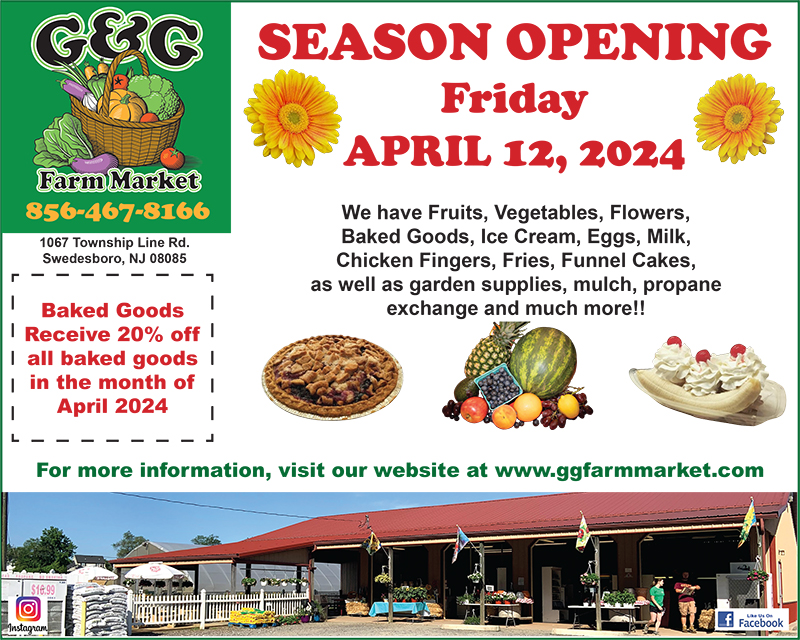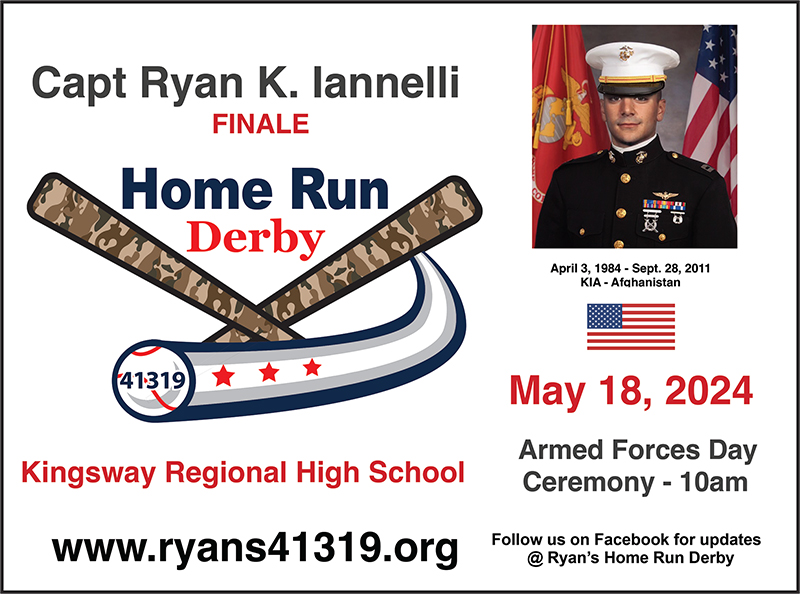By Jean Redstone
Our society has instituted effective traditions to help and support mourners dealing with the loss of a family member or close friend. There’s a gathering around, an understanding, a sharing of the pain, an offering of sympathy and caring, the partaking of rituals.
 But what if that close friend/family member is a pet? Typically, the loss of a beloved pet engenders a few words of sympathy and comfort, an acknowledgement of grief. Then you are expected to get over it and replace the pet, if you desire, and go on about your business.
But what if that close friend/family member is a pet? Typically, the loss of a beloved pet engenders a few words of sympathy and comfort, an acknowledgement of grief. Then you are expected to get over it and replace the pet, if you desire, and go on about your business.
Such practicality does not work for many pet owners. It did not help Leonard (Len) Curtis of Paulsboro, for example, who lost his best friend, Harry, a member of his family for nearly eight years. “To say I was ‘devastated’, that’s too shallow a word,” Curtis said. “We did everything together. We walked every day, chased a ball every day. He slept on his own bed in our bedroom. He was a protector, a companion. He was a good boy. A good boy. Period.”
Curtis’ wife, Mary, said her husband, “has really gone through a lot over this. It really is like we lost a member of our family. Harry was Lenny’s shadow and he’s taking this very hard.

“I’m not as vocal as he is, but I don’t mourn Harry any less. I have Harry’s Christmas hat and the little antlers we had for him. When I would leave the house to go to work (at the Borough of Paulsboro) I always said, ‘Bye now, Harry.’ And now there’s no one there. We called him ‘Handsome Harry.’ I loved that dog more than I loved some people.”
Harry, a Rottweiler-shepherd mix adopted as a juvenile from the Gloucester County animal shelter, was diagnosed with advanced metastatic cancer at St. Francis Veterinary Center, Woolwich, Len Curtis said. “We took him in because he just didn’t want to get up one day. He was fine, his usual self, but this day he wouldn’t get up. They did tests. Then they gave us back our credit card and told us we should take him home. There was nothing to be done,” he recalled, his voice welling with tears at the memory.
Handsome Harry died on Labor Day.
Just days before Harry displayed signs of illness, he and Curtis were on their usual walk after work (Curtis has worked at the Gloucester County Regional Waste Water Treatment Plant for 34 years.) “You won’t believe this,” he began the story, “but I look back and think maybe it was a sign. I saw something shiny on the path and it turned out to be a St. Francis medal. (St. Francis is often considered the patron saint of animals.)”
Perhaps it was, indeed, a sign because when St. Francis hospital, where Harry was cremated, delivered the box with the remains it included a pamphlet on a group called Day by Day. That pamphlet became a lifeline for Len and Mary Curtis in their journey through the grieving process.

Day by Day Pet Caregiver Support, headquartered in Drexel Hill, PA, has found a niche in pet care and the niche is growing into a trend. Founded in 2012 by Kathryn Jennings and her husband, Chris, the nonprofit organization provides information and support for bereaved pet owners. The group has a presence in veterinary hospitals, clinics, and offices in the midAtlantic area from Maryland to New York. Some of those hospitals or clinics offer support “circles”, a kind of group therapy for grieving pet owners.
The only support circle in South Jersey is at St. Francis Veterinary Clinic. Kathryn Jennings talked about the fairly recent growth of a support philosophy for people whose pets are chronically ill, terminal or already passed. She said she began to understand that the grief that begins with end-of-life care and lasts past death is not just a mourning felt for human family and friends. She came to it herself when her miniature schnauzer, Pookie Poo (mini-schnauzers are really, really cute and get named accordingly), faced several chronic conditions and, at 13, required euthanasia.
“There were lots of costs, not just financial or labor or vet visits, but emotional and care-giving costs. I realized I needed help with this, and I saw other people at the vet’s office crying, worried, scared, who needed help too,” Jennings said. “People experience grief far before death occurs. You start grieving when you get bad news from your vet, see your pet decline. But most people I saw suffered in silence. That was the acceptable.”
She and her husband used their experiences and Kathryn’s skill at her career in communications, marketing and fundraising, to start Day by Day. She began by contacting veterinarians. She does not charge for the hotline, pamphlets, training of professionals and counselors, research information or the circles of support at various venues. Day by Day relies on fundraising and donations. “From the very beginning I knew I was not going to charge for what I felt was a service people should have access to,” Jennings said. “After a loss or while decisions must be made, people need an opportunity to mourn in a safe, non-judgmental, comfortable and empathetic environment.”
The Jennings began their venture contacting veterinarians and offering their services. “We see ourselves as an extension of the veterinarian experience, whether it’s dogs, cats, rabbits, horses, any pet,” she explained. “We used to go out and contact them, but now we find many are hearing about us and contacting us. We’re growing.”
Day by Day, in conjunction with veterinarian offices and clinics, offers what is known as “After Care”. It is the care for a pet owner during and after end-of-life medical care. “We are one of a kind in the country,” Jennings said. “Nobody does what we do in the level and depth of services.”
While veterinary schools do not teach end-of-life support measures for pet owners, the idea has been discussed and written about, claimed Mark Magazu II, President and CEO of St. Francis Veterinary Center. “I think the industry at the faculty and thought-leader level, you’re seeing it beginning with writings and interest,” he said. “But you’re not seeing it at the practical level yet. It’s just beginning to be understood in applicable care.”
Magazu learned about Day by Day recently when a staff member brought the organization up, he said. He offered the agency room without charge for group meetings where bereaved pet owners could meet once a month with people going through the same emotional traumas. “We see this as our responsibility to our clients,” Magazu said. “A moral obligation.“Our care begins when an owner brings in a pet for puppy or kitten care, or other care, and doesn’t end with end of life. We have a responsibility to aid the owner who is suffering, confused. I think as a society we are growing to be able to talk about feelings (of pet loss) now. Twenty years ago, we didn’t do that. Day by Day is groundbreaking and has helped teach us how to deal with an owner’s grief, how to better help them.
“You could say it’s trend-setting but if we can help clients like Len, we like trend-setting.”
Len and Mary have attended every support circle meeting since their dog died. He shares stories about Harry, and about Harry’s predecessor, Lilly, whose death also plunged the family into lengthy mourning. “This made a difference to me between (dealing with) Lilly’s death and Harry’s. I get the conversation. It’s like magic. I can’t talk enough about him. I was in the blame-myself-for-not-doing-enough place,” Len Curtis said. “But now I can see I’m not alone.
“I get to talk about him. I get to say how he loved to see Mr. Frosty truck come to the house. How he was a gentle giant, a protector.” When not talking with other pet owners Curtis feels free to call the Day by Day hotline and reminisce or let his feelings out. “They truly supply a hell of a service,” he said.
Curtis characterized his deep relationship with Harry as: “I was his magnet and he was my steel. He rescued me from a broken heart (when Lilly died).” He said he tried visiting the animal shelter for another dog. “I can’t bring myself to go in,” he said. “I went there a couple of weeks ago and had to leave. I couldn’t be there.”
But he said the talk therapy has helped him come to grips with his grief sufficiently that he now hopes, “Somehow a puppy or a dog will find me. Or someone will say, ‘There’s this dog I know about …’”
Playwright Eugene O’Neill in 1940 penned his beloved dog’s supposed last will, The Last Will and Testament of an Extremely Distinguished Dog. Listed in that document was the dog’s hope his death would not keep his owners from loving another one, because, “It would be a poor tribute to my memory never to have a dog again.”
It’s a philosophy Len and Mary Curtis, helped by Day by Day and St. Francis, have embraced. As the New Year approached, they arranged to adopt a 2-year-old stray picked up the Gloucester County Animal Shelter. Like Handsome Harry, this dog has German shepherd heritage. Len and Mary, started their new adventure with a new love, Baron, the first week of the new year.
You can reach the Day by Day support group at www.daybydaypetsupport.com or by phoning: 484-453-8210












